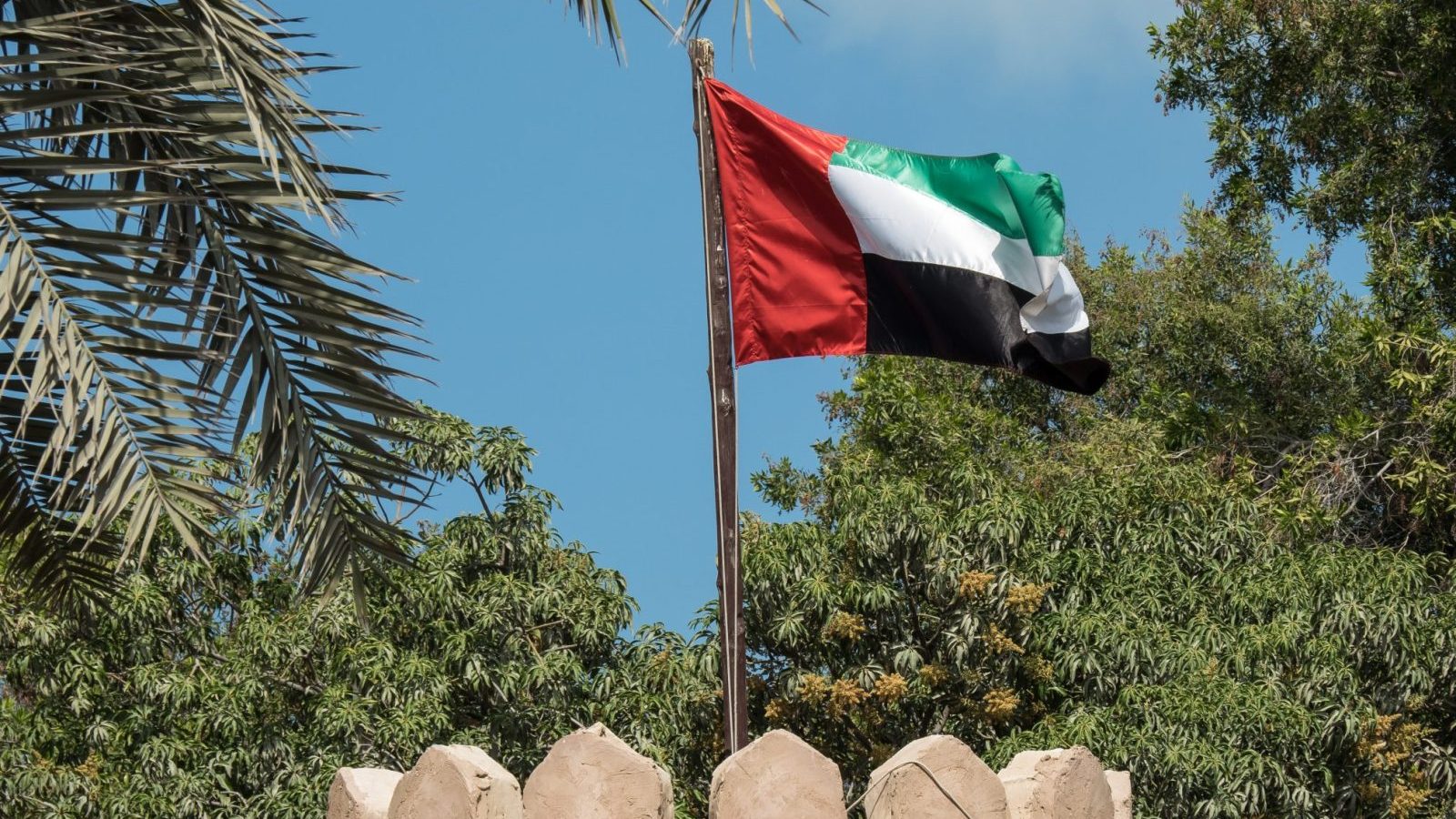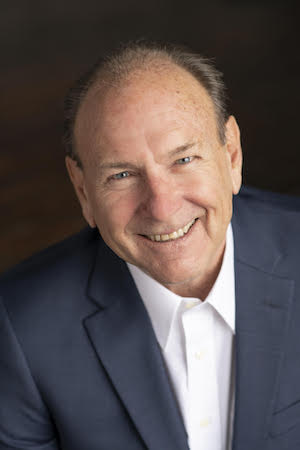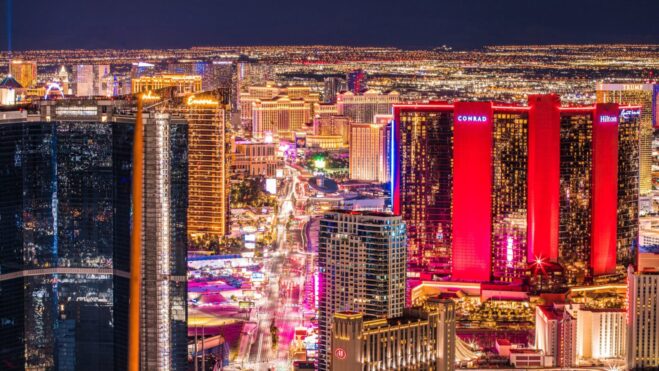Schuetz: Regulating Gaming In The United Arab Emirates
Transparency may prove elusive as a Wynn hotel-casino moves forward in UAE
6 min

“You can always count on Americans to do the right thing — after they’ve tried everything else.”
— Winston Churchill
It was on Oct. 4, 2024, that Wynn Resorts announced out of Las Vegas that the General Commercial Gaming Regulatory Authority (GCGRA) of the United Arab Emirates had granted a commercial facility operator license to the Wynn Al Marjan Island resort in Ras Al Khaimah, UAE. As an aside, Ras Al Khaimah means head of the tent in Arabic. The integrated hotel complex, initially anticipated to cost $3.9 billion, is now estimated to cost $5.1 billion. It will be approximately a one-hour drive from Dubai.
Ras Al Khaimah is home to many incredible yachts, including that of Andrey Melnichenko, whose 385-foot, $300 million luxury yacht is known to reside in the area at times, arguably to avoid being seized. His other yacht, the $600 million one, was seized in March 2022 in Trieste, Italy. Melnichenko is a Russian oligarch who was with Vladimir Putin the day Russia invaded Ukraine, and sanctions have been imposed on his assets by the European Union. The UAE is known for providing a sanctuary for Russian money and assets to protect them from seizure by Western nations.
I assume that the information about Wynn receiving the license is accurate. However, it is unusual that when one visits the website of the many-lettered regulatory acronym for the UAE and examines its news releases, one finds that only four press releases have been issued in its two years of existence. And the only one that addresses a license being issued is for a lottery.
On the regulator’s website, there is a listing of “Our licensees.” Here, it lists “Land-Based Gaming Facilities Licenses,” and the only listing is the statement Island 3 AMI FZ-LLC (DBA: Wynn Al Marjan). This link leads to a site managed by Wynn Newsroom, which provides news and related information for all of Wynn’s properties and is connected to a Wynn Nevada telephone number.
It was also unusual that on the regulator’s website, there is no agenda for any meetings, no minutes of any meetings, no schedule of any meetings, and no electronic recordings of any meetings — a very strange reality for a website whose front page is titled “Pioneering the future of gaming regulation.” I suspect this implies a future of gaming regulation that keeps many aspects of the regulatory process out of public view.
It is also strange that the regulator claims on its website, “We issue a variety of licenses for different types of licensees, following a clear and transparent licensing process.”
It is hard to see any transparency in the licensing process. Again, there is no published schedule of meetings, no apparent minutes, and no apparent written or video record. Essentially, nothing on the website indicates any transparency regarding the Wynn licensing process or any others. Even the salaries of the regulators are not disclosed, although it is a safe bet that the seven members of the Board of Directors for the regulatory entity are multi-millionaires.
For a regulatory agency to make such a statement regarding transparency, when it appears demonstrably false, does raise questions about the credibility of the regulator.
Bad reputation
It appears that Wynn was quite comfortable obtaining a gaming license for the multi-billion-dollar facility, as it initiated construction in 2023, and it was clearly understood that the facility would include a casino. Apparently, they assigned a very small risk profile to this costly facility not being licensed.
It was also interesting to note that when Wynn started construction, the UAE was on the Financial Action Task Force’s “grey list,” meaning the country was subject to increased monitoring to correct deficiencies in “money laundering, terrorist financing, and proliferation financing.”
In 2020, Raja Kumar, president of the Financial Action Task Force (FATF), noted that the UAE needed to “take urgent action to effectively stop the criminal financial flows that it attracts.”
One also notes that the UAE was named in the Panama Papers (here and here) the Paradise Papers (here), Dubai Uncovered (here, here), and Pandora Papers (here, here, and here). None of these mentions was in any way positive.
It also appears that the warning mentioned above by Kumar went unheeded, for in March 2022, the UAE was placed on the FATF “grey list” due to deficiencies in its money laundering controls and weaknesses in its financing of terrorism controls. Additionally, at this time, the European Union had added the UAE to its list of high-risk countries due to anti-money laundering deficiencies.
The UAE secured removal from the FATF grey list in February 2024. This was, however, controversial, and the European Union refused to remove the UAE from its blacklist at that time. Moreover, the Organized Crime and Corruption Reporting Project provided additional information to FATF concerning the fact that “convicted criminals, fugitives, and sanctioned individuals own property in Dubai,” and FATF has pledged to investigate these accusations.
Of interest was that on Sept. 6, 2024, less than one month before Wynn announced it had received a gaming license in the UAE, the U.S. Attorney’s Office, Southern District of California, announced that Wynn Las Vegas, had “agreed today to forfeit $130,131,645 to settle criminal allegations that it conspired with unlicensed money transmitting businesses worldwide to transfer funds for the financial benefit of the casino.” As the announcement stated, “this was believed to be the largest forfeiture by a casino based on admissions of criminal wrongdoing.”
Carissa Messick, special agent in charge for IRS-CI in Las Vegas, noted: “Federal laws that regulate the reporting of financial transactions are in place to detect and stop illegal activities. Deliberately avoiding Bank Secrecy Act requirements is a form of money laundering. IRS Criminal Investigation is committed to following the money and enforcing these laws, wherever it leads.”
Then, on Sept. 19, 2024, the law firm Pomerantz LLP released that it had achieved a $70 million settlement against Wynn Resorts for events relating to misleading statements by the company, its CEO, and Wynn executives concerning a “decades-long pattern of sexual misconduct and harassment by Wynn.”
Again, these announcements occurred less than 30 days before the license was announced, understanding that the UAE gaming regulator’s mission statement “is to drive sustainable growth by cultivating world-class commercial gaming operations and agile regulation, grounded in the principles of integrity, innovation, and responsible practices.”
High bar for triggering alarms
It seemed fascinating that a huge recent settlement for a firm that did not protect its employees from sexual abuse and that forfeited over $130 million for an inappropriate money handling operation would not alarm the regulators in the UAE. Wynn did note in the press release that, “The license award follows a diligent and extensive review by the GCGRA.”
It appears that Wynn and the UAE are strange bedfellows. In the United States, Wynn has been a vocal supporter of the LGBTQ community for many years. See here, here, here, here, and here.
This runs in contrast to laws in the UAE that can result in death sentences or long jail terms for same-sex activities. See here, here, here, here, and here.
One wonders about the involvement and impact that the regulatory authority will impose on the licensee to ensure that the LGBTQ community is aware of the UAE’s legal environment for all guests and employees of the Wynn property in the UAE. Moreover, it seems possible that the corporate entity of Wynn may request that its other properties withdraw their support for the LGBTQ community to avoid offending the UAE leaders, who will likely house their most profitable property. Finally, there is the question of whether the regulator would find against a licensee who neglected to report suspicions of an illegal act taking place within the restrooms or hotel facilities of Wynn in the UAE.
Wynn’s new relationship with the UAE also involves a fundamental change in press freedoms for the company there. Note here, here, and here.
Respecting the general environment of human rights in the UAE, this statement is pretty concise.
Aside from all of those details, the GCGRA believes the market will be well served by just one firm. The regulator seems to have little interest in moving forward quickly, so Wynn should maintain a monopoly position for some time. This should create enormous value for the interest holders.
—
Richard Schuetz entered the gaming industry working nights as a blackjack and dice dealer while attending college and has since served in many capacities within the industry, including operations, finance, and marketing. He has held senior executive positions up to and including CEO in jurisdictions across the United States, including the gaming markets of Las Vegas, Atlantic City, Reno/Tahoe, Laughlin, Minnesota, Mississippi, and Louisiana. In addition, he has consulted and taught around the globe and served as a member of the California Gambling Control Commission and executive director of the Bermuda Casino Gaming Commission. He also publishes extensively on gaming, gaming regulation, diversity, and gaming history. Schuetz is the CEO of American Bettors’ Voice, a non-profit organization dedicated to giving sports bettors a seat at the table.







